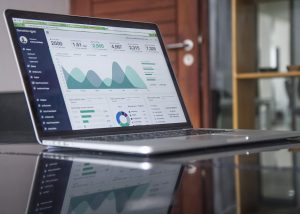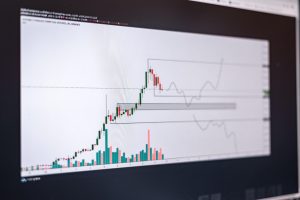
Forex trading may be a lucrative way to make money on the side, but it is by no means a promise of quick earnings, especially when there are traders out there who begin trading without being sufficiently informed of how the market works.
Consider these six most typical blunders that new forex day traders make when trading currency pairs before you take the plunge, as they are the major causes of their failure.
Trading without a stop loss
Every forex day trade you create should have a stop-loss order. A stop-loss is an offsetting order that will exit the position if the price moves against you by the amount you specify. You should use a stop-loss order on each of your trades to minimise risk. If you start losing money on a trade, the stop-loss helps you avoid losing more than you can handle.
Adding to a losing day trade
Averaging down is increasing your position (the price you bought the trade at) as the price falls while you mistakenly believe that the trend will reverse. In general, it is a bad idea to continue adding to a losing trade. The price may go against you for a more extended period than you expect as your loss worsens.
Instead, take a trade with the correct position size and place a stop-loss on it. If the price reaches the stop loss, the trade will be closed at a lower loss than it would have if there were no stop loss. There’s no need to risk more than is necessary.
Trading more than you can afford to lose
The amount of money you risk on each trade is crucial to your risk management plan. Traders who day trade should risk no more than 1% of their capital on any single transaction. A stop-loss order will end a trade if it results in less than a 1% trading loss.
Controlling daily losses is another aspect of risk management. Even if you risked only 1% per trade, you might lose a significant amount of money in a single awful day. Set a limit for the amount you are willing to lose in a day. You should stop there if you can sustain a 3% loss on any given trading day.
Choosing the wrong broker
The most significant trade you’ll ever make is when you deposit money with a forex broker. You might lose all of your money if it’s poorly managed, in financial difficulty, or outright fraud.
Take some time to research brokers. When picking a broker, you’ll have to go through a five-step procedure. Consider what you want to achieve, the features that a broker may provide, and whether or not reliable sources can offer recommendations for brokers. Then, start by testing the broker with small and manageable trades.
Taking multiple trades that are correlated
You’ve probably heard that portfolio diversification is a good idea. Diversification is a method of trading that relies on your knowledge, experience, and the type of assets you’re trading. If you’re a diversifier, you may be inclined to take multiple-day trades at once rather than just one, believing you’re spreading your risk. However, when not done well, you are most likely increasing it.
If you spot a similar trade setup in multiple forex pairs, there’s a chance they’re linked. That is why you see the same setup in each one. When pairs are linked, they move together, implying that you will almost certainly win or lose on all of them. You’ve multiplied your loss by the number of trades you made if you lose.
Trading without a plan
A trading plan is a document that outlines how you intend to trade. It explains how, when, and what you’ll day trade. What markets will you trade? When will you execute trades? How will you enter and exit trades for both winners and losers? What are some risks that you absolutely will not take, and what are some you can afford to take depending on the situation?
A good trader always has a solid trading plan in place and sticks to it through thick and thin. You’re taking chances if you don’t have a trading strategy. Make a plan and test it out in a demo account or simulator and see what you can learn from that experience.
The final say
These hints may sound a lot like gambling warnings, despite forex trading not being exactly the same as placing bets at a casino. However, one thing forex trading, in general, has in common with gambling is that it has the potential to make you wealthy one day and penniless the next—recent studies and ideas about compulsive trading addiction are gaining traction (for good reasons), so it also makes sense for traders to be on the lookout for symptoms if things feel amiss.
At the end of the day, it takes patience, skill, and discipline to trade. As you get more experienced with forex trading, you may have to adjust your strategy as time passes. Your financial and personal circumstances will alter over time, so you’ll find it helpful to use diverse methods at various times.



